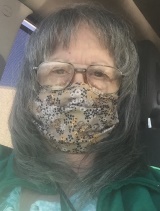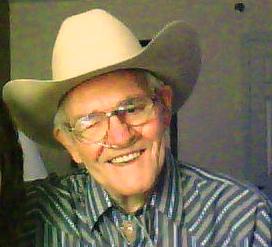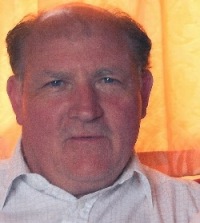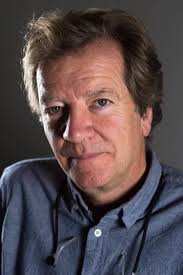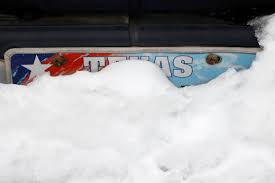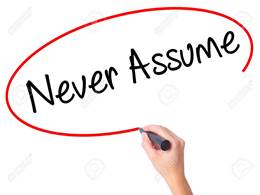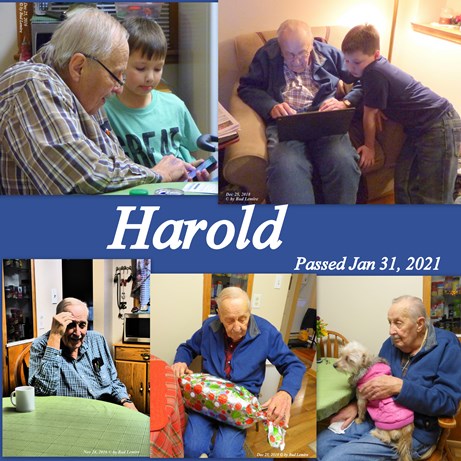
By
Thomas F. O'Neill
The clash between Republicans and Democrats
is culturally evident in the U.S. along with the war between
conservatism and liberalism. Other nations around the globe view this
dichotomy as a cultural phenomenon in America.
Being a liberal, conservative, or moderate reveals how we as
individuals identify ourselves in society. In today's, political arena
Democrats and Republicans also view their party affiliation in a
fundamentally different way too. My students like to bring up these
ideological differences in my classes because it is not something they
experience on the Chinese mainland.
On a global scale, I like to explain to my students how
Westerners and Asians see themselves in a fundamentally different way. I
always understood that we Americans view ourselves as being
individualistic, independent, and analytical, it’s due to our cultural
history. The Asian cultures take a more holistic view of life,
emphasizing interdependence which I find intriguing.
Each year, I conduct a word game for my Cultural Diversity
students, where the students must pair off a series of words to reveal
their cultural views and their relationship with society.
For instance, if the words are train, bus, and tracks, an
American with an individualistic mindset would pair train and bus since
they belong to the same category (modes of transportation). In contrast,
a Chinese person with a culturally holistic mindset is more likely to
pair train with tracks since they share a functional relationship.
China’s history has influenced its cultural perceptions and
for thousands of years working the land led to their interdependence
with nature. People of Asia, have a higher percentage of farmland
devoted to rice paddies they think more holistically than your average
American.
If you were to ask a Chinese person to draw a diagram of
their social network, they would draw a circle emphasizing their friends
and acquaintances. In contrast, most Americans would emphasize
themselves concerning others due to our cultural perceptions and
assumptions.
Unconsciously, Americans stress the importance of the self
and westerners will self-inflate their importance more so than those
from Asian cultures. On the most part, people born in China won’t
inflate their self-worth but on average people born in western cultures
do.
For thousands of years growing rice was a labor-intensive
crop in Asian countries, dependent upon a complex infrastructure of
dikes and canals. This influenced or created a culture that recognizes
human interdependence. Most Asians would also view the importance of
society over their individual needs.
In contrast, our American history of the frontiersman,
hunting, fishing, and growing simple crops have shaped our perception of
independence and the rugged- individualistic mindset.
The relationship between people and land helped shape our
cultural assumptions, which are then passed down from generation to
generation. This is certainly true when it comes to the contrast between
the western and eastern cultures.
Our western influence, however, is beginning to have an
impact on China and their perceptions about the west. It’s mostly due to
the popularity of American films and western music. I am witnessing,
among my students and Chinese teenagers in general. That they want to
become like their counterparts in western countries.
There are regions mostly in the large cities of China that
have populations that share many basic assumptions with westerners. Many
others, though, are much closer in the mindset of people in other
rice-cultivating countries such as Japan and Korea.
Cultural differences between the East and West, especially,
as China’s influence expands, our relationship with the nation will only
continue to grow. Many foreign exchange students are also bringing
western ideals, and customs, back to China with the hope of bridging the
differences through a growing cultural understanding.
A simpler way of understanding our cultural differences is to
understand that Chinese society is all about the group, while Americans
celebrate the individual. The United States is a meritocracy in which
individuals can shine, while in China, any success is regarded as a
success for the company, or the family, or the team. A Chinese person
will consider how their actions may affect the group rather than looking
out only for themselves.
One thing I noticed when I came to China is that the
hierarchy is important to the Chinese and respect will be shown to those
higher up in the structure. American companies tend to have much
flatter structures, with workers at all levels having access to those at
the top. In China, a worker low down the pay scale would not expect to
have direct contact with their superiors. Everybody knows their place in
the structure and abides by the rules that come with it. The company at
times will reward the employees through a means of profit-sharing when
the company does will everyone reaps the benefits.
I found that conversations with my students can often make
westerners feel intruded upon. A conversation in China can feel direct
to Americans. Even though Americans like to place people in the context
toward the common ground, small talk about age, income, and marital
status, all favored by the Chinese, can feel intrusive and overly
personal to an American. Having said this, Chinese visitors to the
United States can find the language and tone used in American workplaces
rude and uncomfortable. Thinking before you speak is important to the
Chinese, as is showing respect for those higher in the hierarchy.
Communication style is indirect and Americans doing business with
Chinese counterparts will need to learn to read between the lines.
Some of my students that traveled to America as exchange
students bring up the differences in how the elderly are treated in the
US. China treats its seniors differently than we in the West. Elders
are held in greater respect and treated as such, both in business and
socially. Many families live with several generations under one roof.
Even the dead are honored. Americans, on the other hand, expect their
offspring to be independent. The older generation can live hundreds of
miles away from their children, and the isolation of older adults is a
social issue. The American workplace can seem ageist to older people,
too, as youth culture is celebrated. On the opposite end of the spectrum
though some provinces in China have a mandatory retirement age that we
westerners would find discriminatory not to mention illegal in America.
Many Americans I have worked with over the years have brought
up the differences between the concept of friendship between Americans
and Chinese coworkers. Chinese people are inclined to foster deeper
friendships than we Americans are accustomed to. They may see Americans
as initially gregarious but difficult to get to know on a deeper
personal level. A friend in China is someone to whom you feel deeply
obligated and for whom you will do favors when necessary. This
translates into business, where the Chinese will try to forge
relationships and connections, known as guanxi. Trust is essential
before doing business. Colleagues tend to socialize together as part of
relationship building and business entertainment is lavish. Americans,
on the other hand, tend to keep work and personal life separate. I have
attended lavash parties with Chinese people and it is their way of
building trust while forging a deeper relationship.
When I first arrived in China, I noticed that Chinese urban
areas lack personal space. Cities in China are densely populated, and
crowded, especially when it comes to public transportation. Americans
are more accustomed to physical space and will become territorial if
they feel crowded, snapping at people who push in line and staking out
little kingdoms for themselves, whether it’s their car, desk, or
airplane seat. That being said, many major cities in China are, clean,
especially, when it comes to restaurants. The streets, subways, and
public transportation, in general, are also much cleaner than many
cities in the US which China prides itself on. However, as everyone
knows, air and water pollution are a huge problem for all inhabitants on
the Chinese mainland.
I, like most westerners, see the ability to express oneself
and to access information as a basic human right. When I came to China, I
noticed how heavily censored the media is, especially, when it comes to
the internet. Social media networks that Americans take for granted,
like Instagram, YouTube and Facebook are not accessible in China, while
many Western newspapers are blocked online. You must apply for a license
to use a VPN Router that gives you access to everything that the
Chinese government has censored. Getting a VPN was the first thing I did
when I arrived here. In Chinese companies, information is shared on a
need-to-know basis, rarely filtering down from the top, while American
corporate culture is much more open, with considerable effort being made
to embrace transparency.
I am completely open and honest with my students when I tell
them that I find Chinese people to be much more polite than westerners.
Unlike Americans’ Chinese people will avoid confrontation wherever
possible to save face. Shouting at someone causes both parties to lose
face and if a reputation is lost in business, a relationship can be
permanently damaged. As such, Chinese executives will often avoid giving
a straight answer to save the other person embarrassment. Americans,
who tend to be very direct and literal, can find this confusing and
frustrating. The worst thing you can do in negotiations with Chinese
colleagues is to go out of your way to prove a point, regardless of the
effect it has on others. But for Americans, the end result is more
important than reputation or even relationships.
One aspect that is most apparent between our two cultures is
that humility is revered in China and people tend to downplay their
achievements. America is almost the exact opposite; in a meritocracy,
you need to make the most of yourself and let people know about your
successes. The Chinese can see this as crass and boastful, while in the
United States, humility can be regarded as a sign of weakness. I found
that in the teaching profession, especially, here in China it is best to
let others recognize your abilities while you downplay your
accomplishments. Westerners who boast about their accomplishments rarely
succeed in their profession in China.
How business is conducted in China can at times lead to some
frustration, for westerners. I find patience can take you quite far when
it comes to business dealings. Business in the United States moves at a
different pace from China. Americans focus on speed and efficiency and
will hurry to get things done quickly. Time is money, and people are
expected to turn up on time for meetings and to meet deadlines. The
Chinese, on the other hand, can be slow decision-makers, preferring to
build consensus and foster relationships before plunging into anything.
Deadlines may only be met when the time is right, and the project is
considered complete. Americans can find this attitude to punctuality
frustrating and time-wasting, while in negotiations, the Chinese will
take advantage of the American need for speed, playing a waiting game to
secure a better deal for themselves. Some in the west would consider
the Chinese way of doing business as quite deceptive but to them, it is
business as usual, and it would be wise to read between the lines before
committing yourself contractually.
I like to tell my students; I no longer view China as a
developing nation because living in China has given me a unique
perspective that China is on par with America as a developed country. It
now has the largest domestic economy in the world and China is about to
overtake the US in terms of its immense infrastructure.
I always do my best to help my students understand the
importance of gaining a clearer understanding of the American way of
life, and the cultural differences between our two nations; China’s
rising power and influence in the world makes gaining that understanding
a necessity not just for China but for America’s economic wellbeing.
Always with love from Suzhou, China
Thomas F O’Neill
U.S. voice mail: (800) 272-6464
China Mobile: 011 (86) 13405757231
Skype: thomas_f_oneill
Email: introspective7@hotmail.com
Blogspot: http://thomasfoneill.blogspot.com
Facebook: http://facebook.com/thomasf.oneill.3/
Click on author's byline for bio and list of other works published by Pencil Stubs Online.






